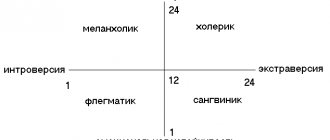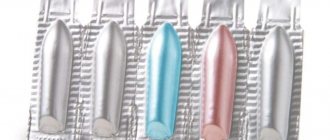Business and personal qualities
An employee’s business qualities are his ability to perform certain job duties.
The most important of them are the level of education and work experience. When choosing an employee, focus on the benefits he can bring to your company. Personal qualities characterize an employee as a person. They become important when applicants for one position have the same level of business qualities. Personal qualities characterize an employee’s attitude towards work. Focus on independence: he should not do your work, but must cope with his own to the fullest.
| Business qualities | Personal qualities |
| The level of education | Accuracy |
| Specialty, qualification | Activity |
| Work experience, positions held | Ambition |
| Labor productivity | Non-conflict |
| Analytic skills | Fast reaction |
| Quick adaptation to new information systems | Politeness |
| Fast learner | Attentiveness |
| Attention to detail | Discipline |
| Flexibility of thinking | Initiative |
| Willingness to work overtime | Performance |
| Literacy | Communication skills |
| Mathematical thinking | Maximalism |
| Customer interaction skills | Perseverance |
| Business communication skills | Resourcefulness |
| Planning skills | Charm |
| Report preparation skills | Organization |
| Oratorical skills | Responsible approach to work |
| Organizational skills | Decency |
| Enterprise | Devotion |
| Professional Integrity | Integrity |
| Scrupulousness | Punctuality |
| Ability to handle multiple projects simultaneously | Determination |
| Ability to make quick decisions | Self-control |
| Ability to work with large amounts of information | Self-criticism |
| Strategic Thinking | Independence |
| Striving for self-improvement | Modesty |
| Creative thinking | Stress resistance |
| Ability to negotiate/business correspondence | Tact |
| Ability to negotiate | Patience |
| Ability to express thoughts | Demandingness |
| Ability to find a common language | Hard work |
| Ability to teach | Self confidence |
| Skill to work in team | Equilibrium |
| Ability to put people at ease | Determination |
| Ability to persuade | Honesty |
| Good appearance | Energy |
| Good diction | Enthusiasm |
| Good physical form | Ethical |
Personal qualities of employees
These are aspects of human life that are formed individually, developing every year. They affect not only relationships in the family, everyday life and friendly contacts, but also work processes.
- Skill to work in team. Of course, this is very important when the team, as a whole, is determined to achieve results, to organize its work without conflicts and in a pleasant positive way with the rest of the employees.
- Justice and honesty. This is the key to the right attitude and the opportunity to demand the same attitude towards yourself.
- The ability to listen to other people’s opinions, accept advice and recommendations. You need to understand that the decision made may not always be the only true and correct one, and an outside perspective is sometimes able to most effectively assess the situation. It is important to simply accept such help.
- Adequate perception of criticism from outside. Do not think that the criticizing person is completely negative towards you. Perhaps this is simply a method to show real performance results and improve their level. Such criticism mostly brings positive results.
- Ability to defend your decisions and interests. In industrial disputes, based on evidence and facts, it is important to correctly convey performance indicators
- Integrity. This is a quality that helps you defend your own point of view.
- The ability to keep your word. This position convinces of responsibility and the opportunity to rely on your candidacy, confirming once again that you are a good employee.
- Showing tact. This is the ability with which it is possible to build better relationships in a team.
- Determination and perseverance. Such innate qualities allow you to defend your own position and convince management of the correctness of your decisions.
The assessment of the business qualities of employees for the first time occurs when hiring. It is here, during the interview process, that the head of the organization considers your candidacy positionally, mentally applying these qualities in relation to the future functionality of the job. And a little later, by conducting regular certifications, it helps to assess the suitability of abilities for the position held. During the assessment process, a number of other main tasks are solved:
- the most relevant place in the organizational structure is determined for more effective use of the strengths of the future employee;
- if necessary, develops an individual development program for employees;
- ways of possible motivation are determined;
- The satisfaction of personnel from their duties is considered.
On the one hand, such a process helps to actively collect all the necessary information to study the employee’s level of professionalism and the possible organization of his training, and on the other hand, it increases his motivation and develops the basis for future material incentives.
Choice of qualities
If more than 5 characteristics are included in the resume, this is a signal that the applicant is not able to make an intelligent choice. Moreover, the standard “responsibility” and “punctuality” have become banal, so if possible, ask what these general concepts mean. A striking example: the phrase “high performance” could mean “ability to work with a lot of information”, while you were counting on “willingness to work overtime.”
Such general concepts as “motivation to work”, “professionalism”, “self-control” can be explained by the applicant in other expressions, more specifically and meaningfully. Pay attention to incompatible qualities. To make sure that the applicant is honest, you can ask him to illustrate the characteristics he specified with examples.
Negative qualities of an employee
Sometimes job applicants also include them in their resume. In particular such as:
- Hyperactivity.
- Excessive emotionality.
- Greed.
- Vengefulness.
- Impudence.
- Inability to lie.
- Inability to work in a team.
- Restlessness.
- Touchiness.
- Lack of work experience/education.
- Lack of a sense of humor.
- Bad habits.
- Addiction to gossip.
- Straightforwardness.
- Self-confidence.
- Modesty.
- Poor communication skills.
- The desire to create conflict.
An applicant who includes negative qualities in his resume may be honest, or he may be reckless. Such an action does not justify itself, but if you want to know possible problems with this applicant, ask him to list his negative qualities. Be prepared to give the person the opportunity to rehabilitate himself and present negative qualities in a favorable light. For example, restlessness indicates easy adaptation and quick switching from one task to another, and straightforwardness indicates the benefits that it can bring when concluding a deal.
Be prepared to give the person the opportunity to rehabilitate himself and present negative qualities in a favorable light.
What are personal qualities on a resume?
What are personal qualities on a resume? Almost every employer, when searching for line employees, includes this item in the resume; we have already looked at what line personnel are, which is given to applicants for completion.
In this column we must outline our personal qualities that will help in effective activities.
Personal qualities are no less important than work experience and educational information. It is better to indicate personal qualities in a resume briefly, but try to choose words that would comprehensively describe all the positive aspects. It is always better to write the truth on your resume. In any case, the deception will be discovered and this will be a significant disadvantage for the candidate.
What positive qualities are best not to be included in a resume, it depends on the position for which the candidate is applying; if it is a selection of personnel for working specialties, you should not indicate in the resume that communication skills are a distinctive feature of the candidate.
It’s better not to use templates that migrate from resume to resume:
- responsibility;
- punctuality;
- diligence;
- non-conflict.
It is better not to include words with the particle “not” in your resume. It’s better to write “goodwill”. It is better to replace responsibility with “I readily take on new projects”; communication skills can be replaced with “I easily find contact with people.”
Qualities for different professions
Certain professional qualities are needed in almost all types of activities. You can make it easier for applicants and at the same time narrow their circle by including information about the required characteristics in the job advertisement. For an employee in the field of promotion or entertainment, the main qualities are communication skills, the ability to work in a team, and to win people over. The list of winning qualities will also include: charm, self-confidence, energy. In the field of trade, the list of the best qualities will look like this: flexibility of thinking, skills in interacting with clients, the ability to negotiate, work in a team, as well as quick response, politeness, perseverance, and activity.
A leader in any field must have such professional qualities as organizational skills, the ability to find a common language and work in a team, resourcefulness, lack of conflict, charm and the ability to teach. Equally important are the ability to make quick decisions, self-confidence, attentiveness and balance.
The strengths of an employee working with a large amount of data (accountant or system administrator): attention to detail, accuracy, quick learner, attentiveness, organization and, of course, the ability to work with a large amount of information.
The characteristics of a secretary include a variety of positive qualities: skills in interacting with clients, business communication, literacy, ability to negotiate and conduct business correspondence, and the ability to deal with several things at the same time. Also pay attention to good external characteristics, attentiveness, tact and balance, and diligence. Responsibility, attentiveness and stress resistance are useful in any profession. But the applicant, adding such qualities to his resume, does not always take them seriously.
Responsibility, attentiveness and stress resistance are useful in any profession. But the applicant, adding such qualities to his resume, does not always take them seriously.
The importance of professional qualities
And it is the professional qualities of an individual that are assessed by the employer at the interview stage of future employees. Each specialty, each position held requires its own set of qualities, the presence of which will determine the professional growth of the future employee, which is important for satisfying the ambitions of the employee, as well as for compliance with the profession, which is important for the employer. And since not only his individual success, but also the development of the organization as a whole depends on the professionalism of each individual employee, the employer places special emphasis on professionally important qualities.
The quality of professional activity requires a certain set of professional qualities. However, there are qualities that are universal and form the basis of any activity - their presence is welcomed in all areas of activity:
- the ability to independently perform assigned tasks, without constant supervision from superiors;
- ability to comply with job descriptions and follow established rules;
- the ability to be part of a team;
- learning ability;
- ability to take initiative while remaining part of a team;
- no conflict;
- be sociable;
- be able to make decisions to the best of your ability.
Assessment of employee professional qualities
To avoid wasting time and money testing new employees, companies sometimes evaluate them before hiring. There are even special personnel assessment centers created for this purpose. A list of assessment methods for those who prefer to do it themselves:
- Letters of recommendation.
- Tests. These include routine aptitude and aptitude tests, as well as personality and biographical tests.
- Interview.
- An exam on the knowledge and skills of an employee.
- Role play or cases.
Role-playing will help you find out in practice whether the applicant is suitable for you. Simulate an everyday situation for his position and see how he copes. For example, evaluate his customer interaction skills. Let the buyer be your competent employee or yourself, and the applicant will show what he is capable of. You can set a goal for him to achieve during the game, or simply observe his working style. This method will tell you much more about the applicant than the “Personal Qualities” column on a resume.
When deciding on evaluation criteria, you can base your assessment on business qualities: punctuality, potential quantity and quality of work performed, experience and education, skills, etc. For greater efficiency, focus on the qualities required for the position for which the candidate being assessed is applying. To be confident in an employee, consider his personal qualities. You can conduct an assessment yourself in the form of a ranking of candidates, placing + and – according to certain criteria, distributing them by level or awarding points. Avoid assessment pitfalls such as bias or stereotyping, or placing too much weight on one criterion.
Development of professional qualities
Personal and professional qualities are the result of education. The influence of parents, the general mood in the family, the support of family and friends allow a person to feel more confident, set goals and easily achieve them. The influence of society, friends and teachers is also no less important. But professionally significant qualities, whether or not developed in childhood, are not a death sentence for an individual. A person can develop and correct them for himself. To confirm this, we recommend a clear plan of sequential actions set out in the book “Business Expert” in order to become a generally recognized expert in your field,
Development through self-confidence
The most important thing that a successful person should have, regardless of career level and profession, is self-confidence and self-confidence. This is the basis of any field of activity and the result of self-development. When taking on a task, you must be able to soberly assess your capabilities and possible risks. And having taken up the task of execution, you need to use your full potential and bring the job to the end, even if difficulties arise.
The role of self-analysis in professional development
There are several methods that help develop professional qualities of an individual. First of all, this is self-analysis, as a result of which it becomes clear which professional qualities are sufficiently formed and which ones need to be improved or nurtured. Having already decided on what is missing, you can plan your development of professional qualities. The most important thing in this difficult process is to clearly define the desired result, the ways and timing of its achievement.
Self-discipline in the development of professional qualities
Improving professional qualities is a long process. There are a lot of trainings and theoretical material on this topic that are worth taking the time to study. But you can cope with the task on your own. Self-discipline is required. This will give you the first reason for pride, which will give you confidence in your abilities, self-esteem will accordingly increase and difficult tasks will turn out to be easier, and solving each problem will bring additional confidence in your abilities. At the first stage, even the smallest success is important. For example, by developing such a quality as consistency, you need to accustom yourself to planning even the most insignificant things, for example, cleaning an apartment. A constructive way of thinking is gradually transferred to all areas of activity and “registered” in the brain.









